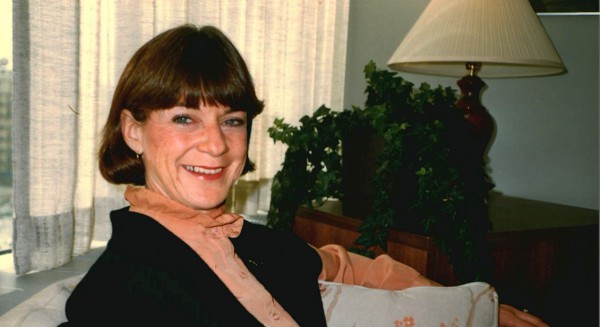Margaret Ethier, UNA president from 1980, remembered as a tough and courageous leader
Margaret Ethier, Registered Nurse and union activist, is remembered for her leadership of the United Nurses of Alberta during the tumultuous, strike-filled years of the 1980s.
“Margaret was the feisty, tireless advocate for bedside nurses that was so desperately needed during our formative years,” UNA President Heather Smith recalled Monday. “She did not back down, regardless of the threats from the employers or government. We owe so much of what we have today to Margaret Ethier.”
Ethier died Friday in Edmonton of ALS.
Ethier was born in rural Nova Scotia in 1943. After receiving a “boot camp” nursing education in Halifax during the days of caps, bibs and aprons, Ethier worked in Ontario, Manitoba and British Columbia before coming to Alberta. She once described herself as “obstinate and pushy” –just the qualities UNA required during her presidency from 1980 to 1988.
She was a North Central District Representative in April 1980 when 6,400 UNA nurses walked off the job in a legal strike at 79 Alberta hospitals to seek significant pay increases and improved scheduling provisions.
UNA members were ordered back to work three days later by the Alberta cabinet, but they remained on strike while they challenged the order in court. Negotiations continued, and an agreement was reached that included a pay increase of 39.8 per cent in addition to more than 50 contract improvements that included Professional Responsibility Committees.
This would lead Ethier to recall, in an interview with the Alberta Labour History Institute in 2003, that nurses simply demanded to be treated like other workers, with the same workplace rights and respect. “The employers never did like us comparing ourselves to other workers,” she remembered. “They always wanted to talk to us about being nurses, being there for the patients. We said ‘OK, but we’re also workers!’”
“All of our strikes were intended to improve the wages and working conditions of nurses,” she added.
Ethier ran for the presidency at the UNA annual general meeting in November 1980 and won. Within a year, UNA members were on strike again – this time at the Hardisty Nursing Home in Edmonton, where the employer managed to win the strike and drive out the union.
In this atmosphere, negotiations commenced for a new Provincial Collective Agreement with heavy interference from the Progressive Conservative Government in the collective bargaining process. In February 1982, UNA began a legal strike affecting 6,000 nurses at 69 hospitals.
In March, the Legislature ordered UNA nurses back to work, putting a tribunal in place with the power to order a binding settlement which that summer would give the hospital nurses a 29-per-cent pay increase over two years along with additional contract improvements.
In the same time frame, the association of Alberta health units locked out 300 UNA nurses for a month. The dispute was settled at the bargaining table with a 14-per-cent pay increase over one year and a $250 signing bonus, plus other contract improvements.
In the spring of 1983, the PC Government of Premier Peter Lougheed passed legislation denying nurses and other hospital workers the right to strike and providing for heavy fines and dues deductions for failure to comply. Still, as Ethier would later observe, “the government can make all the laws they want, but they can’t stop people going on strike.”
President Smith recalls: “I remember Margaret’s words in those days: ‘We are not Sisters of charity!’”
UNA experienced legal strikes in 1985 at various health units and the Victorian Order of Nurses in Calgary.
In 1987, armed with the government’s ban on strikes by hospital nurses, the hospital employers bargaining group tabled proposals for massive rollbacks – a situation that led directly to the illegal strike by 14,000 UNA nurses at 98 Alberta hospitals, the last strike on Ethier’s watch as president.
The union would pay close to a half million dollars in fines but thanks to the solidarity of members and support from other unions emerged stronger, with most of the contract provisions the employer had tried to roll back still in place.
“We won the strike,” Ethier asserted in 2003. “We didn’t make significant gains. … But it was a lot about respect. We did maintain that they had to respect us, to deal fairly with us.
“We’re not afraid,” she said, of nurses then, and now. “We will work together. And we’re tough.”
Ethier is survived by her husband of 51 years, Adelard.

